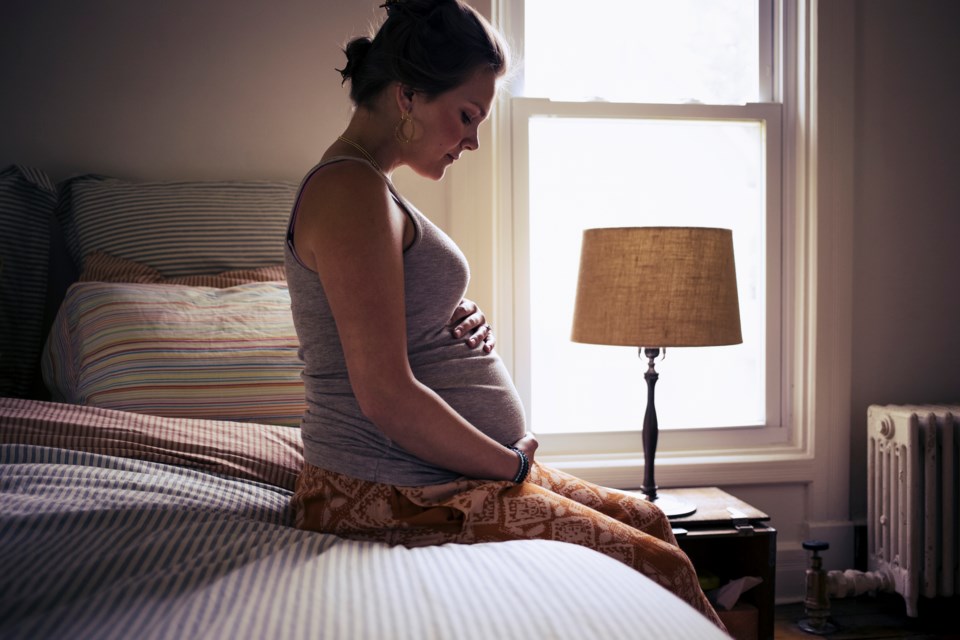Postpartum depression is a familiar, if scary, term. It’s one that was shrouded in shame and referred to in hushed tones for many years. For some it still is.
But postpartum depression is really only one part of the umbrella that is reproductive mental health. Perinatal (while pregnant) depression and anxiety is also an issue that women face along with existing mental health conditions before pregnancy that can make conceiving daunting.
According to Dr. Karen Rivera, a psychiatrist at the Reproductive Mental Health program at Vancouver's BC Women's Hospital and Health Care Centre and a clinical instructor for the Faculty of Medicine at UBC, the likelihood of mental health challenges in pregnancy and postpartum is caused by “changing hormone levels, and it's thought that these changing hormone levels affect the neurotransmitters or the chemicals in the brain that can change people’s mood or anxiety or cause other mood or anxiety symptoms.”
The Reproductive Mental Health program offers support and resources to women who are pregnant or up to one year postpartum experiencing these kinds of mental health issues.
And the already-busy program has only increased in demand since the coronavirus (COVID-19) pandemic.
“Pre-pandemic, we were seeing 5,000 patient visits per year. But in each year of the pandemic, it's actually increased to approximately 6,000 patient visits per year,” says Rivera–a 20 per cent increase. “What we found is that one in five women experienced postpartum depression, postpartum anxiety or other reproductive mental health issues and the pandemic’s really amplified that.”
The social isolation and lack of personal and professional support has increased women’s risk of anxiety and depression in pregnancy and postpartum because of: cancelled appointments or prenatal classes, employment stressors or job loss, financial stressors or strain, an increase in relationship conflict and an increase in possible violence in the home, increased responsibilities on parents, especially moms needing to take on extra roles with older children at home due to restrictions without childcare support, and, additionally, just the general fear of COVID-19 over the last two years.
That's why, Rivera says, developing research initiatives to provide virtual tools and more accessibility for women in British Columbia is so crucial. Reproductive Mental Health offers both medical and non-medical intervention options for people who want to learn more about medication or otherwise.
"Our aim is to provide holistic health care to women, says Rivera, "We know that women who are pregnant and postpartum are not always interested in medications as options for their depression or their anxiety and it's not always necessary depending on the severity...we look at the person as a whole." The program takes a patient-led approach and the practitioners work in partnership with women to hear what they think will be helpful for them.
“When you are first referred by your midwife or your family doctor or your obstetrician you have an appointment with one of the psychiatrists on the team. And then your follow up is with them, depending on what your needs are. You may also be linked up with one of the counsellors and it's the same people so the team is consistent, you get consistent care throughout,” she explains.
During their time in the program women can join different virtual groups and they have access to a team that consists of individual counsellors, a social worker, and a dietitian.
There are also resources available for fathers who are struggling. Postpartum depression can also be found in men and the Reproductive Mental Health program looks at trying to help the broader family unit. Rivera expands, "Obviously, the focus is woman but I really think that that's the way moving forward in medicine because I think people are yearning for more holistic treatments."
The upcoming 2022 Love You by Shoppers Drug Mart run for women is raising money for two additional initiatives that Reproductive Mental Health is currently developing based on their research.
The first is developing a mindfulness based intervention for parents and families experiencing perinatal mental illness, and the second research initiative is a decision making tool to support women deciding how to care for their mental health during pregnancy.
Love You by Shoppers Drug Mart Run For Women
When: May 7, 2022
Where: Wesbrook Village, University of British Columbia
Sign up for the in-person or virtual 10K and 5K options.



